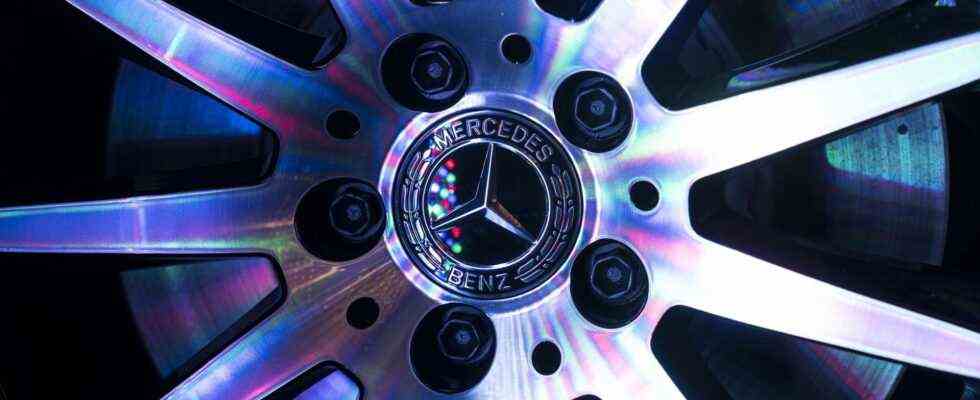As of: 10/29/2021 11:30 a.m.
In times of semiconductor shortages, the car manufacturer Daimler builds its chips mainly in the particularly high-priced cars. Sales are falling sharply – but profits are increasing.
The automaker Daimler proved to be surprisingly robust in the third quarter. Regardless of the serious shortage of chips, which led to production downtimes, the Stuttgart-based company was able to keep its sales of 40.1 billion euros almost at the previous year’s level between July and September. The bottom line was that Daimler earned almost 2.6 billion euros from July to September – around a fifth more than in the previous year. Sales of cars and trucks fell by 25 percent.
The Mercedes-Benz Cars and Vans division sold 471,404 vehicles, 30 percent less than in the same period of the previous year. Nevertheless, the management sees good chances of achieving its annual targets. “We are staying on course,” said CFO Harald Wilhelm when presenting the figures. This year sales and operating profit are expected to be significantly higher than in the previous year. A more favorable product mix and high price stability would have helped to partially offset semiconductor-related supply bottlenecks and higher raw material prices. The supply of semiconductors will improve in the fourth quarter, but shortages are also expected in the coming year.
Economy program and luxury limousines
As a reason for the surprisingly good quarterly results, Wilhelm also cited “substantial progress” in the implementation of the corporate strategy. Daimler boss Ola Källenius, who has headed the brand with the star since May 2019, has launched an unprecedented austerity program that will kill tens of thousands of jobs worldwide. In addition, unprofitable models are being discontinued.
At the same time, Daimler is benefiting from its focus on high-priced cars that are sold at correspondingly high profits. At Mercedes, for example, all available semiconductors are currently channeled into the production of particularly profitable models such as the S-Class or the GLE. Sales of the top limousine Maybach are at a record level with 10,800 units after three quarters. The tuning models of the subsidiary AMG are also heading for a new all-time high with 116,000 units sold. The assembly of mid-range A- and B-class cars with rather low margins, on the other hand, was throttled.
Problem child trucks and buses
In its most recent annual forecast, the group lowered its forecast for car sales only slightly, while van sales are expected to remain stable. “The demand for all products remains strong in all markets,” said Daimler. This could even result in increasing sales in the coming year. This tendency enables the brand to have “high price stability”. CFO Wilhelm therefore does not expect the average prices to drop. However, the increased raw material prices are likely to weigh on the group by around one billion euros this year.
On the other hand, the subsidiary Daimler Trucks & Buses, which is about to go public, is causing concern. Their operating profit slumped in the third quarter by 19 percent to 489 million euros, although sales and sales increased in the single digits. Higher raw material costs could only have been partially offset by higher prices. In December, the truck and bus business is to be spun off from the Daimler Group and floated on the Frankfurt stock exchange. The remaining car division is then to be renamed Mercedes-Benz Group AG.

